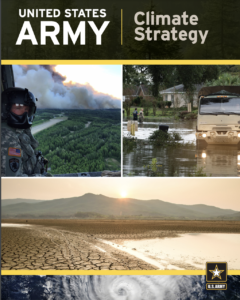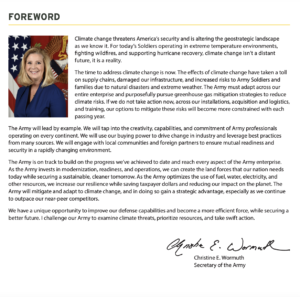Army sets 2050 net-zero emissions goal – Subscription requird
Bonus Chapter #2 from The Politically Incorrect Guide to Climate Change:
Excerpt: The climate activists have it backward. A 2011 study published by the Center for Strategic and International Studies titled “The Climate Wars Myth” found, “Since the dawn of civilization, warmer eras have meant fewer wars.” As author Bruno Tetrais explained, “History shows that ‘warm’ periods are more peaceful than ‘cold’ ones…
John Horgan, the director of the Center for Science Writings at the Stevens Institute of Technology, explained, “In spite of the recent surge in violence in the Middle East, war-related casualties have fallen over the last half-century, as temperatures have risen…
A 2013 study published in the Proceedings of the National Academy of Sciences found that cold eras were dark times in Eastern Europe. “Some of Eastern Europe’s greatest wars and plagues over the last millennium coincided with cold periods,” explained a summary of the study in Science News.




